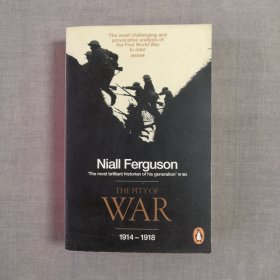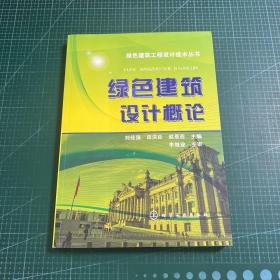
The Pity Of War:Explaining World War I英文原版
正版现货,原书实拍,内页完好,当天发货!
¥ 198 7.4折 ¥ 268.5 八五品
仅1件
作者Niall Ferguson 著
出版社Basic Books
出版时间2000-03
版次1
装帧平装
上书时间2021-09-12
- 最新上架
商品详情
- 品相描述:八五品
图书标准信息
- 作者 Niall Ferguson 著
- 出版社 Basic Books
- 出版时间 2000-03
- 版次 1
- ISBN 9780465057122
- 定价 268.50元
- 装帧 平装
- 开本 32开
- 纸张 胶版纸
- 页数 608页
- 正文语种 英语
- 【内容简介】
-
A landmark work of history that challenges our most basicassumptions about the causes and consequences of the First WorldWar
In The Pity of War, Niall Ferguson makes a simple andprovocative argument: that the human atrocity known as the GreatWar was entirely England's fault. Britain, according to Ferguson,entered into war based on nave assumptions of German aims-andEngland's entry into the war transformed a Continental conflictinto a world war, which they then badly mishandled, necessitatingAmerican involvement. The war was not inevitable, Ferguson argues,but rather the result of the mistaken decisions of individuals whowould later claim to have been in the grip of huge impersonalforces.
That the war was wicked, horrific, inhuman, is memorialized inpart by the poetry of men like Wilfred Owen and Siegfried Sassoon,but also by cold statistics. More British soldiers were killed inthe first day of the Battle of the Somme than Americans in theVietnam War; indeed, the total British fatalities in that singlebattle-some 420,000-exceeds the entire American fatalities for bothWorld Wars. And yet, as Ferguson writes, while the war itself was adisastrous folly, the great majority of men who fought it did sowith enthusiasm. Ferguson vividly brings back to life thisterrifying period, not through dry citation of chronologicalchapter and verse but through a series of brilliant chaptersfocusing on key ways in which we now view the First World War.
For anyone wanting to understand why wars are fought, why menare willing to fight them, and why the world is as it is today,there is no sharper nor more stimulating guide than NiallFerguson's The Pity of War. - 【作者简介】
- Niall Ferguson is fellow and tutor in modern history at JesusCollege, Oxford. He is the author of Paper and Iron and The Houseof Rothschilds and the editor of Virtual History: Alternatives andCounterfactuals.
- 【目录】
-
Figures
Tables
Illustrations
Acknowledgements
Notes on the Illustrations
Introduction
The Myths of Militarism
Empires, Ententes and Edwardian Appeasement
Britains War of Illusions
Arms and Men
Public Finance and National Security
The Last Days of Mankind: 28 June4 August 1914
The August Days: The Myth of War Enthusiasm
The Press Gang
Economic Capability: The Advantage Squandered
Strategy, Tactics and the Net Body Count
Maximum Slaughter at Minimum Expense: War Finance
The Death Instinct: Why Men Fought
The Captors Dilemma
How (not) to Pay for the War
Conclusion: Alternatives to Armageddon
Notes
Bibliography
Index
相关推荐
-

THE PITY OF WAR 【毛边本】
八五品运城
¥ 400.00
-

THE PITY OF WAR 【毛边本】
八五品嘉兴
¥ 400.00
-

The Pity Of War:Explaining World War I
八五品周口
¥ 260.00
-

The Pity Of War:Explaining World War I英文原版
八五品深圳
¥ 208.00
-

The Pity of WarNiall Ferguson
九五品广州
¥ 468.00
-

China: The Pity of It
八五品北京
¥ 1440.00
-

China The Pity of It dxf001
八五品亚洲
¥ 1440.00
-

Beware of Pity
九品北京
¥ 108.00
-

Beware of Pity
八五品扬州
¥ 150.00
-

The Pity Of War:1914-1918 战争的悲悯 尼尔·弗格森 英文原版
八五品黑河
¥ 98.00
— 没有更多了 —











![中文版Revit 2018完全实战技术手册[未拆封]](https://www0.kfzimg.com/sw/kfz-cos/kfzimg/bbabedda/0b42d29394c89b09_s.jpg)

![古文观止今注今译[精装]](https://www0.kfzimg.com/sw/kfz-cos/kfzimg/fbfccbcf/aaed8e47d6c68ca2_s.jpg)


以下为对购买帮助不大的评价